Laser Tattoo Removal in Tunisia
Search and Compare the Best Clinics and Doctors at the Lowest Prices for Laser Tattoo Removal in Tunisia
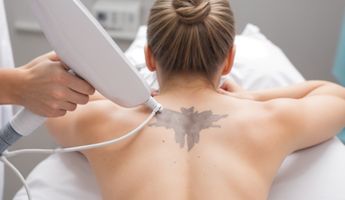
Find the best clinics for Laser Tattoo Removal in Tunisia
With Medijump you can browse 2 facilities offering Laser Tattoo Removal procedures in Tunisia. The cheapest price available is $81 in Monastir. And for the cheapest price globally, prices start from $3 in Vietnam.
Laser Tattoo Removal in Monastir
Price: $ 81
Vietnam offers the best prices Worldwide
Price: $ 3
From 11 verified reviews
Craig Mills, 30 July 2019
Excellent private health care looked after my soon after he drowned in sahara beach hotel this month would definatly recommend being cared for there staff were amazing
Aesthetica Tour, located in Boulevard Mohamed Bouazizi, Tunis, Tunisia offers patients Laser Tattoo Removal procedures among its total of 42 available procedures, across 9 different specialties. Currently, there's no pricing information for Laser Tattoo Removal procedures at Aesthetica Tour, as all prices are available on request only, whilst the national average price is approximately $81. All procedures and treatments are undertaken by the lead specialist at the Hospital, and they are not accredited by any recognized accreditations institutes
- Home
- Tunisia
Compare Before & After Photos of _procedure_photos.phpLaser Tattoo Removal
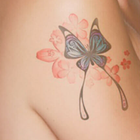
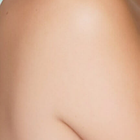
Front view
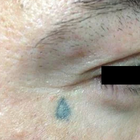
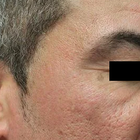
Half-side view
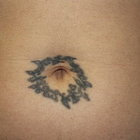
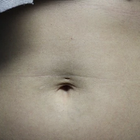
Front view
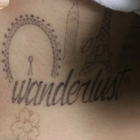
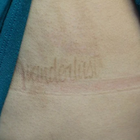
Front view
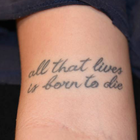
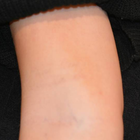
Front view
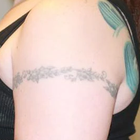
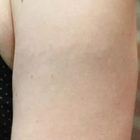
Full-side view
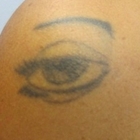
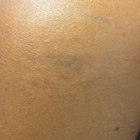
Front view
WHY US?
At Medijump, we're making medical easy. You can search, compare, discuss, and book your medical all in one place. We open the door to the best medical providers worldwide, saving you time and energy along the way, and it's all for FREE, no hidden fees, and no price markups guaranteed. So what are you waiting for?

Free

Best Price

Widest Selection

Risk-Free
What you need to know about Laser Tattoo Removal in Tunisia
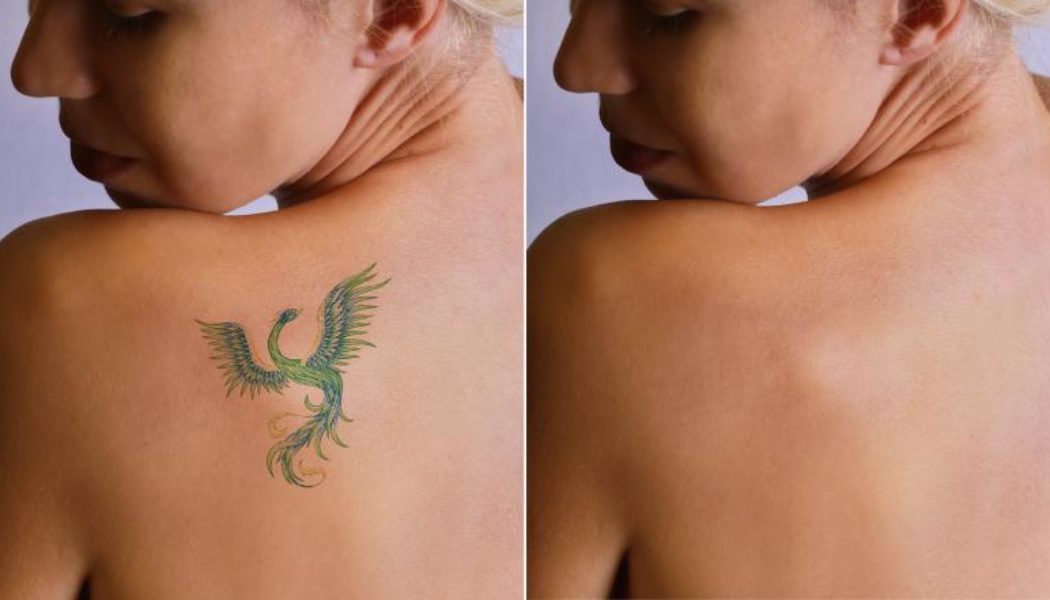
Laser tattoo removal is a technique to eliminate an unwanted tattoo with little to no side effects. It works by breaking up the pigment colors with a high-intensity light beam. You can undergo a laser tattoo removal if you regret having a tattoo, unhappy with the appearance of your tattoo, the tattoo causes infection, or you have an allergic reaction to the tattoo. Once you've done laser tattoo removal, your unwanted tattoo will be gone forever.
Grasping the notion that Laser Tattoo Removal is not a one-off activity, but instead encompasses an array of treatments distributed over multiple weeks, is crucial. Variables like the dimensions, hue, tattoo positioning, along with the person's general well-being determine the count of requisite sessions.
What is the cost of Laser Tattoo Removal in Tunisia?
In Tunisia, the Laser Tattoo Removal cost can greatly fluctuate. It hinges upon several considerations such as the size, emplacement, tattoo color, and the amount of needed therapy sessions. Other influencing factors are the laser technology utilized and the reputation of the clinic.
The majority of clinics in Tunisia extend payment schemes and financing aids to render the process more financially manageable. Bear in mind, though, that Laser Tattoo Removal isn't typically included in medical insurance coverage as it's deemed a beauty-related procedure. Irrespective of the expenditure, it is vital to give precedence to first-rate care and the proficiency of the healthcare staff over cost-effectiveness.
What does a Laser Tattoo Removal Procedure Involve?
The process of Laser Tattoo Removal entails directing particular wavelengths of laser light on the tattooed part of the skin. A highly specialized laser is chosen depending on the colors present in the tattoo for carrying out this technique. The light pulses penetrate the skin's topmost layers to reach the tattoo's pigment. This energy from the light leads to the fragmentation of the tattoo ink into minute particles, which are gradually flushed out by the body's immunity system.
Most people do not need anesthesia, but you can ask for a topical or local anesthetic from your doctor. During the procedure, you will have to wear protective eye shields. Then, your doctor or technician uses a laser to bring pulses of intense light to the top layers of your skin and only the tattoo pigment will absorb this light. Depending on the size, color(s), and age of your tattoo, you might need more than one treatment session.
How Long Should You Stay in Tunisia?
You can leave Tunisia after your tattoo removal procedure. However, it may take several treatments to completely remove the tattoo. Given that everyone reacts distinctively, the process might necessitate anywhere from 3 to 10 visits. The interval between each treatment is around 7 weeks to allow the treated area enough time to heal. You are free to retreat to your home, or a place of your choosing, in between these sessions. This sequence persists until your tattoo is completely removed. Nevertheless, it is critical to resume your journey to Tunisia for each forthcoming Laser Tattoo Removal.
What's the Recovery Time Like?
You will feel pain and discomfort for around a week, but your skin will completely heal in around six weeks. You should be able to go to work as long as you do not feel any pain or discomfort that interferes with your life.
Right after every session, you may observe minor swelling and a reddish tint on the manipulated area. These indications normally wane within a short span that can range from a few hours to two days and can be tamed with chilled packs and popularly accessible pain relievers. Evading exposure to sunlight and demanding activities in the initial few days is of utmost importance to forestall probative issues.
What sort of Aftercare is Required for Laser Tattoo Removal Procedures in Tunisia?
Your doctor will give you aftercare instructions; make sure to follow the instructions. Keep the treated area clean, do not soak the area, and try to avoid popping blisters. If the treated area itches, apply hydrocortisone cream. Avoid smoking as it can reduce the effectiveness of laser tattoo removal by around 70%.
The treated region should also be protected from the sun and covered with a high SPF sunscreen because the skin will be more susceptible to UV deterioration. Additionally, avoiding activities that could result in significant sweating or close contact with the area of the skin that is receiving treatment is advised. You must avoid the impulse to pick or scratch at the treated area if you want the skin to heal properly. Finally, maintaining effective healing and general health requires drinking plenty of water and eating a diet that is nutritionally balanced.
What's the Success Rate of Laser Tattoo Removal Procedures in Tunisia?
Laser tattoo removal is the most effective tattoo removal treatment with a success rate of over 95%. It's important to understand that when discussing tattoo removal, the term "effectiveness" typically refers to the degree of tattoo fading rather than complete tattoo removal. The depth, type, and concentration of the ink, the tattoo's colour, as well as the recipient's skin features and overall health, can all have an impact on the final design.
Are there Alternatives to Laser Tattoo Removal Procedures in Tunisia?
Laser Tattoo Removal has evolved into a highly effective strategy for eliminating tattoos, but you're afforded various other alternatives if Laser Tattoo Removal does not align with your requirements. Intense pulsed light (IPL) therapy, for instance, where light pulses are deployed to dissolve the tattoo ink, could be a viable proposition particularly for larger tattoos. However, for heavily inked or deeper tattoo locations, IPL might not yield the desired outcome.
Dermabrasion is yet another alternative. It's a process that employs skin 'sanding' to eliminate the surface and middle skin layers. Compared to laser treatments, dermabrasion can be less comfortable and requires a more prolonged healing duration. In certain instances, it might also be viable to surgically remove the tattoo with a scalpel, but be prepared for the potential of scarring. Therefore, when deciding on the best course of action, it's important to discuss your unique requirements and expectations with a specialist.
What Should You Expect Before and After the Procedure
Before the Laser Tattoo Removal, there will be a discussion with the expert regarding your health history, the treatment information, and your anticipated outcomes. The area on which the tattoo is located must be hygienic and devoid of any ongoing skin issues. A topical anesthesia may be applied during the session for your comfort. The feeling you might experience when the laser is used could be likened to the feeling of a rubber band being flicked against your skin.
Post-treatment, the tattooed section may look inflamed and red, and it could feel a bit warm to the touch and tender. These symptoms should diminish over a few days. It is vital that you adhere to the follow-up care guidelines given by the clinic to ensure the best healing process and outcome. Generally, this requires cleanliness of the area, avoiding direct sun, and abstaining from activities that can irritate the skin. Regular check-ups of your healing process with your expert can assist with timely detection and management of any potential post-treatment issues.
What are Potential Risks of Laser Tattoo Removal?
Laser Tattoo Removal carries some side effects and risks, such as:
- Infection
- Hypopigmentation and hyperpigmentation (treated skin becomes significantly darker or lighter than its surroundings)
- Scarring, bleeding, swelling, and blisters
It's important that you get proper treatment by a reputable doctor to avoid these side effects and risks.
Whilst the information presented here has been accurately sourced and verified by a medical professional for its accuracy, it is still advised to consult with your doctor before pursuing a medical treatment at one of the listed medical providers
No Time?
Tell us what you're looking for and we'll reachout to the top clinics all at once
Enquire Now

Popular Procedures in Tunisia
Prices Start From $28

Prices Start From $6,002

Prices Start From $278

Recommended Medical Centers in Tunisia for Laser Tattoo Removal

- Interpreter services
- Translation service
- Religious facilities
- Medical records transfer
- Medical travel insurance
- Health insurance coordination
- TV in the room
- Safe in the room
- Phone in the room
- Private rooms for patients available

- Interpreter services
- Translation service
- Religious facilities
- Medical records transfer
- Medical travel insurance
- Health insurance coordination
- TV in the room
- Safe in the room
- Phone in the room
- Private rooms for patients available

- Interpreter services
- Translation service
- Religious facilities
- Medical records transfer
- Medical travel insurance
- Health insurance coordination
- TV in the room
- Safe in the room
- Phone in the room
- Private rooms for patients available
Laser Tattoo Removal in and around Tunisia
About Tunisia
Tunisia is one of the few countries which can cater to everyone and it manages to combine climate, golden beaches, history, and shopping for an “all-around” experience. It has a high standard of healthcare and an excellent reputation for cosmetic surgery. Cosmetic and plastic surgeons are regulated by the Tunisian Ministry of Health and the private clinics have state-of-the-art equipment and English-speaking staff. Tunisia welcomes an ever-increasing number of medical tourists each year, many of whom travel for Laser Tattoo Removal procedures. Medical Tourists travel from all across the globe, particularly from Europe and neighboring African countries with an inferior healthcare system. Popular medical tourism destinations outside of the capital, Tunis, include Sousse and Mahdia
Popular Parts of Tunisia
- Tunis, the country’s capital, is overflowing with a history that dates from the 4th Century BC. The city is divided into two parts, the old city known as the medina and the new city (or Ville nouvelle in French). Many tourists visit Tunis to see the Archaeological Site of Carthage which is also a UNESCO World Heritage Site. The beautiful Islamic architecture in medina also attracts many tourists to the city.
- Tozeur is known as a home to an enchanting desert oasis, which was a place to rest and refuel for caravans crossing the Sahara. Another main attraction in the city is the medina, where tourists can find lines of beautiful brick-patterned traditional dessert houses. Chott el Djerid, Sahara’s largest salt pan, is a popular day-trip destination.
- Sousse is located on the coast of the Mediterranean Sea. It offers good beaches with a clear blue sea. The city has been fought over by the Romans, Arabs, and Europeans, giving it a colorful history and culture. Sousse Archeological Museum is one of the most visited sites in the country; it has the second largest collection of mosaics in the world.
- Hammamet is the country’s original tourism resort. The city has beautiful gardens filled with oranges, lemons, and other citrus plants. It also has wonderful sandy beaches with crystal clear water. Just like any other city in Tunisia, this city is also brimming with interesting histories. Sites such as The Gafsa Museum and Bardo Museum will give insights about the Islamic faith and culture.
- Douz, also known as “the gateway to the Sahara.” Tourists who want to experience the Sahara Desert come to this city. Take a camel trip or a 4-wheel-drive into the Sahara or see the Museum of the Sahara that has an interesting collection portraying traditional Saharan life.
Weather and Climate in Tunisia
The North of Tunisia has a subtropical Mediterranean climate with mild rainy winters and hot summers. The South and inland areas have a tropical desert climate.
The weather is relatively comfortable throughout the year. Summer starts in June and lasts until August. The average temperature is between 28 °C to 32 °C with July and August being the hottest months. The heat is not as bad on the coast because of the seaside breeze. Be aware that July to September is the jellyfish season.
The heat decreases in autumn and the weather is somewhat more comfortable. There are occasional rain showers in September. The temperature in October can be like summer during day time, but cold at night. October has more rain than September. The season lasts for three months from September to November with an average temperature of around 19 °C to 29 °C.
The weather in winter can be uncertain. The average temperature is between 16 °C and 18 °C, but it can drop to 7 °C at night and below 0 °C in highlands and deserts and a clear sky is rare during this season.
Spring comes in March and the temperature can rise to 20 °C. Mornings and nights are cold; there is still a high probability of rains and thunderstorms at the end of this season.
Getting Around in Tunisia
Tunisia has several international airports. The main airport is Tunic-Carthage International Airport. It has international connections with major European countries and the Middle East. The airport is the hub for Tunisair, Tunisair Express, and Nouvelair. Other airports that have international flights are Enfidha-Hammamet, Monastir Habib Bourguiba, Djerba-Zarzis, and Tabarka-Aïn Draham.
Taxis and buses are available to get to the city center from Tunis Airport. The SNT bus line departs every 30 minutes from the airport, the ticket costs less than 1 TND. There is also the TUT bus which departs every 15 minutes and is more luxurious and expensive.
Airport taxis are available at the airport taxi stand and are usually metered. Always make sure that the driver turns the meter on before riding the taxis. A journey to the city should cost around 5 TND. An extra cost will be added if you have baggage.
Getting around in Tunisia can be done by several transportation modes. Tunisair Express provides domestic flights between Tunis, Tozeur, Djerba, and Gabes. The Train is also available and the national train company in the country is SNCFT that runs modern and comfortable trains from Tunis to Sousse, Sfax, and Monastir. There are three classes of service that tourists can choose. The fare from Tunis to Sousse is between 6 to 10 TND. The long-distance bus is an economical option to travel between big cities such as Tunis, Hammamet, and Nabeul. The buses usually depart every 30 minutes.
Tourist Visas in Tunisia
Citizens of 97 countries (including Australia, China Singapore, the United States, and Russia) can visit and stay in Tunisia for up to 90 days without a visa. Other nationalities are advised to check with their local Tunisia embassy. Tunisia provides an online visa application for nationalities that needs a visa to enter. The eVisa will simplify the process of obtaining travel authorization to enter the country.
Additional Information
-
Local Currency: the local currency is the Tunisian dinar (TND). 1 USD converts to 2.61 TND.
-
Money & Payments: ATMs can be found in most cities and in all tourist areas. Many ATMs have withdrawal limits of 400 TND. Credit cards (MasterCard and Visa) are accepted in major cities and tourist areas. They can be used for shops, car hire, or top-end accommodation. Always make sure to carry cash if you want to travel outside major cities. Tipping is not necessary but will be appreciated.
-
Local Language: Arabic is the official language of Tunisia. French is very common due to the country’s former status as a French protectorate. English is still very limited except in the tourist areas and expensive hotels.
-
Local Culture and Religion: Islam is the major religion with 98% of the population identified as Muslim. There is a small group of Christian and Jews. Since most of the population is Muslim, always remember that the dress code is important in Tunisia.
-
Public Holidays: Tunisia celebrates major Islam holidays. The country hosts several annual festivals throughout the year such as The International Festival of the Sahara, Yasmine Hammamet Festival, and the International Festival of Carthage.
Popular Searches
- Plastic Surgery in Thailand
- Dental Implants in Thailand
- Hair Transplant in Thailand
- Breast Augmentation Thailand
- Gastric Sleeve in Thailand
- Gender Reassignment Surgery in Thailand
- Laser Hair Removal in Bangkok
- Botox in Bangkok
- Dermatology in Bangkok
- Breast Augmentation in Bangkok
- Coolsculpting in Bangkok
- Veneers in Turkey
- Hair Transplant in Turkey
- Rhinoplasty in Turkey
- Stem Cell Therapy in Mexico
- Rhinoplasty in Mexico
- Liposuction in Mexico
- Coolsculpting in Tijuana
- Rhinoplasty in Korea
- Scar Removal in Korea
- Gastric Sleeve in Turkey
- Bone Marrow Transplant in India
- Invisalign in Malaysia
- Plastic Surgery in the Dominican Republic
- Tummy Tuck in the Dominican Republic
- Plastic and Cosmetic Surgery in Poland
- Rhinoplasty in Poland
- Hair Implant in Poland
- Dental Implants in Poland
- IVF in Turkey

